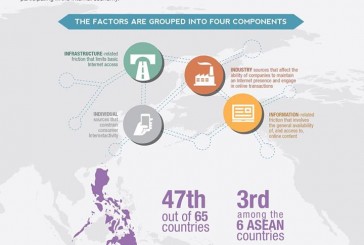Bam on Balikbayan Boxes, Internet Infrastructure (Excerpts from Interview at Radyo Inquirer 990)
On Internet Infrastructure
Sen. Bam: Baka panahon na iyong gobyerno mismo ang maglatag ng fiber optic highway.
Ang modelo kasi sa ibang bansa, naglalatag ang gobyerno ng fiber tapos ang private sector nagre-rent sa gobyerno. Makukuha mo pa rin iyan, dahil gobyerno lang ang nag-upfront.
Habang dini-develop mo ang area, mas magiging viable iyan sa private sector, mas magre-rent sila, mas mababayaran ang infrastructure natin.
Sabi ko nga kay NEDA Secretary Balisacan, Secretary narito na ang NTC, DTI, DOST at private sector, puwede ba sa next hearing natin pag-usapan ang mga solusyon. Kasi ang previous hearings, puro about consumer complaint, na makuha ang tapat na binabayaran, kasi kahit po iyon, hindi nakukuha ng ating kababayan.
Ang next diyan, ano ang long-term solutions at ano ba ang pondong kailangan para dito. Pakiramdam ko kailangang pondohan iyan kasi nakasalalay diyan ang competitiveness ng ating bansa.
Iyong ekonomiya natin maganda ang takbo pero in a few years makita ng investors na mabagal ang Internet diyan, baka hindi pa maging tuluy-tuloy ang investments natin.
Tsaka iyong jobs natin nakasalalay sa Internet infrastructure kaya tuluy-tuloy ang pagtutok natin dito.
On the Balikbayan Box Issue
Q: Sa balikbayan box, napakainit na usapin po ito. Ano ang pakiramdam ninyo rito, ano ang posisyon niyo sa pag-open, by random, ng balikbayan boxes.
Sen. Bam: Matagal na akong nag-file ng bill na pagtataas ng de minimis. Ang de minimis po, kasi sa ating bansa, ten pesos lang. More than ten pesos lang, puwede nang i-tax. Napakaluma na ng probisyong iyan, hindi pa binabago.
Kahit mag-uwi po ako ng tsokolate mula sa ibang bansa, technically puwede na akong i-tax doon kasi hindi nila ina-update iyong ten pesos.
Nag-file na po ako a few months ago, na ang ten pesos gawing ten thousand pesos. Kaya kung less than P10,000, hindi na dapat iyan puwedeng i-tax. Of course, ang ginagawa ngayon wala na lang pumapansin.
Q: Iyong act ng pagbubukas mismo. Iyong random inspection?
Sen. Bam: Sa totoo lang, we have to check kung ano ang mga patakaran diyan. Kasi ang isyu naman ng BOC ay pagdating sa drugs at mga baril.
I also don’t know kung gaano kadalas nangyayari iyon. Gaano ba kadalas nakakapasok ang drugs at baril sa balikbayan box.
Q: Ang ginagawa nila, kaakibat daw ng tamang pagpapataw ng buwis. Tulad ng sinabi ninyo, the root cause here is that after ten pesos puwede ka nang buwisan. Ang solusyon niyo, kapag P10,000 exempted na, wala nang babayaran.
Sen. Bam: Matagal ko na pong na-file iyon, hindi na po iyan nahi-hear. I hope that it can pass into law, number one.
Number two, ang comment ng mga tao, ang dami-daming mga smuggling ng container bakit pati balikbayan box, binibigyan nila ng pansin.
Naiintindihan ko iyon kasi it’s not as if iyong smuggling sa ating bansa wala na, iyong malakihang smuggling. Noong isang linggo lang, maraming luxury car ang nahuli.
Baka rin nasa kung ano talaga ang focus. At the same time, suportahan po natin ang OFWs. Taasan po natin iyong de minimis. Iyon ang batas na gusto nating isulong.
Q: Hindi alam ng taumbayan na ang de minimis, hindi pa pala naamyendahan, at iyon ang ginagamit ng Bureau of Customs ngayon para magbayad ng mas matindi pa ang taumbayan.
Sen. Bam: I’m sure magkaka-hearing po na niyan. Isusulong po natin ang bill natin na pagtaas ng de minimis, gawing P10,000, na kahit ibukas pa iyan, walang isyu, dahil karamihan ng nasa loob ng balikbayan box ay house items at personal items.



Recent Comments